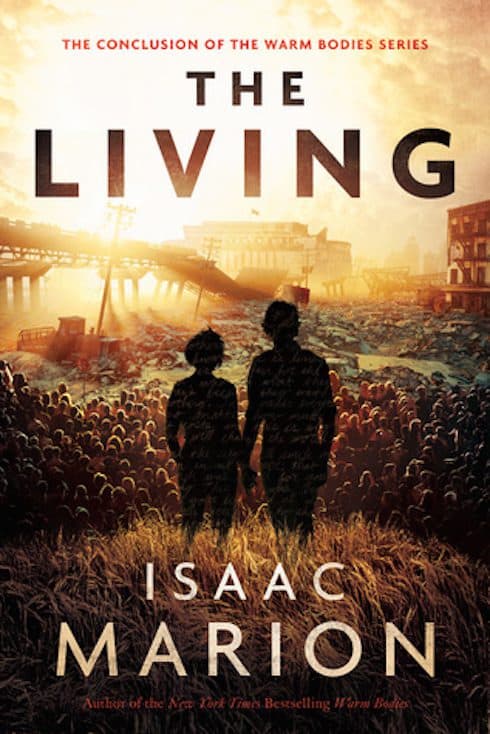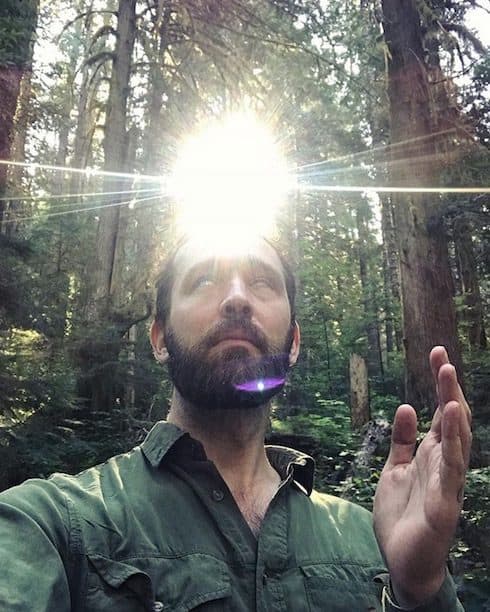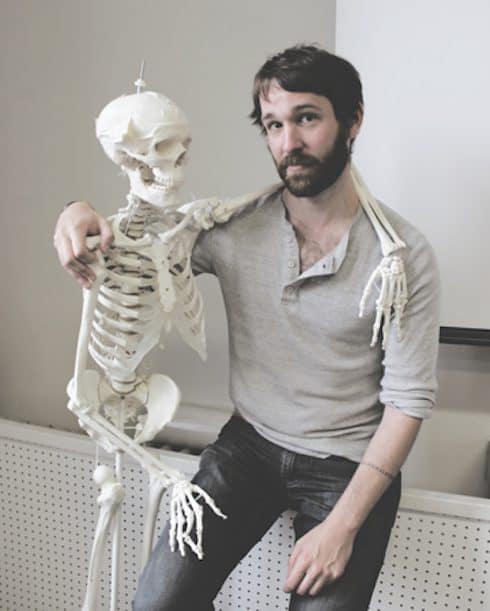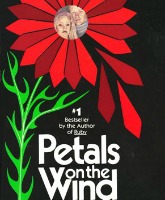‘My dystopian future come true’: An interview with Isaac Marion, author of ‘The Living’

Isaac Marion has just concluded his Warm Bodies series with The Living, a daring, ambitious novel about societal decay, corporate overreach, true love, and hordes of zombies stalking across the land. Only the zombies aren’t what you think of when you think of that word, and the dystopia that Marion depicts has an oddly optimistic bent — in fact, very little of Marion’s writing is like what you’ve probably come to expect from the past decade’s renaissance in zombie lit, movies, and TV shows. (You can read our review of The Living here.)
The origin story of The Living is almost as jarring and dramatic as the novel itself. Marion was forced to self-publish the novel when the commercial failure of The Burning World (2017), the series’ second novel, left him without a publisher. But if you’ve heard of Marion, it’s almost certainly because of the massive success of Warm Bodies (2010), the series’ first release, which reached #1 on the New York Times bestseller list and was made into a successful movie starring Nicholas Hoult, Teresa Palmer, Rob Corddry, and John Malkovich.

Isaac Marion, seen here possibly completing the transition from zombie back to human being.
And so in that sense, Isaac Marion the writer is much the same as the writings of Isaac Marion: deceptively layered; a bit too different for an easy description, no matter how familiar he may seem.
This Isaac Marion interview was conducted via e-mail on the day of The Living‘s release.
Part of your inspiration for Warm Bodies was your own battle with depression. That novel sold hundreds of thousands of copies and even got made into a movie — and then The New Hunger and The Burning World, the next installments in this series, were commercial failures (though, it’s important to note, not critical ones). You’ve even had to live in your van for a time. Did you fall back into a depressed state from that jarring chain of events? And did writing The Living help pull you out of it?
Writing Warm Bodies was cathartic and therapeutic and it did help me work through some of the deeper issues that had been triggers for depression in the past, but I don’t know if anyone ever really “cures” this thing. It’s a constant struggle, but that doesn’t mean you aren’t winning. I just heard something from Alan Watts that I really liked: “Chaos is always losing, but never defeated.” The Living is about fighting for that victory that will never complete. The world will never be Utopia, but we can keep making it better. I’ll never be perfectly happy or fulfilled, but I can keep pushing toward that light. So yeah, even though the external circumstances surrounding these final books were really disheartening and did send me crashing a few times, I still felt like they helped pull me up.
Warm Bodies came out right at the peak of the most recent zombie craze (a year after Zombieland and Pride and Prejudice and Zombies; the same year as The Walking Dead). But the other books in this series go even deeper into the social and governmental fallout that’s come from zombification — they’re each more culturally relevant than the last. And The Living is a grand finale that seems to mirror the massive cultural battles America is fighting right now. Did you try and plan for this? Was this just fortuitous?
I finished writing The Living in 2015. I didn’t intend to attack any specific public figures or current events — most of those events hadn’t happened yet. It’s been bizarre to watch so much of my dystopian future come true right in front of me, right down to insane little details like the government separating families and locking up children…it was a horrifying deja vu when I saw it in the news. I never wanted to write a “political” book in the sense of specific topical satire. My apocalypse was sort of an amalgam of everything that was simmering in 2013-2015 — the usual government corruption and environmental destruction plus a new wave of social disintegration and cultural deadening. I looked at those patterns and imagined where we might end up if we followed them to their extremes. We know R’s future is at LEAST as far away as 2035 but that may have been too optimistic…

The author post-de-zombification. Photo via IsaacMarion.com.
I don’t want to spoil what happens in The Living, so I’ll try to word this as broadly as possible: Given those massive cultural battles, did you feel it was important to see if you could maybe find a happy ending for this novel, potentially?
Yes I did, and if this were a live interview you would hear a weird spike of anger in my response because as I’m typing this I’m realizing how fed up I am with the lazy pessimism of most modern sci-fi. Everyone loves to point out how bad things are but no one wants to stick their neck out far enough to even hint at a way forward. Everywhere else in life, the person who complains without offering a better idea gets kicked out of the conversation, but for some reason it’s perfectly acceptable in fiction. We’ve been allowing a bunch of smirking edgelords to get away with this dead-end satire for years and crowning them Cool and Deep even though they’re contributing nothing. I’m really done with that approach. If I’m going to comment on the ugliness in society, I have to at least try to imagine what beauty could look like. Otherwise, I’m wasting everyone’s time in a very urgent era.
You’re also a musician, and you’ve spoken before about the importance of music to your writing. What were you listening to while writing and revising The Living? And did you compose any music for this novel?
Since I wrote these last two books back to back, it was a lot of the same music that I listened to for The Burning World. I actually made a “book soundtrack” playlist for The Burning World which would give you a pretty good idea of the vibe, but I’m planning to make one for The Living too. I know I listened to a lot of big, grandiose post-rock for the climactic sequences. Sigur Ros, This Will Destroy You, etc. I did compose a song for The Burning World, which I used in the book trailer, but I didn’t have time to do anything that ambitious for The Living…I’ve been too busy actually publishing the book from scratch!
You (or a very big admirer of yours, wink-wink) gained a bit of viral notoriety by posting a number of official-looking “Report Plague Info” signs around Seattle before the release of The Burning World last year. The phone number on the signs was for, basically, a zombification help hotline, and the number was registered to a web site purporting to be from the burned-out future wasteland depicted in your novels — the whole thing was very elaborate. Should we expect a similar DIY, viral marketing campaign for The Living? Or has it already begun…
Sadly…see my previous answer. Those big DIY promo stunts for The Burning World happened because I was overflowing with time and energy that my publisher had no interest in utilizing. I was constantly offering myself to them — Let me help! Give me something to do! — but they had pretty much already decided to just sit back and let the book run its course so I had to find my own outlets for that energy. I really wanted to do more crazy stuff for The Living, but since I’m self-publishing this one there’s no such surplus…I’m just barely keeping my head above water with the basics like social media and interviews. It made me really sad to realize I wasn’t going to be able give this book the circus I think it deserves, but I have to pick my battles…
And having said that, I assume it’s safe to say you won’t be going down the fake Trump tweet rabbit hole again.
Oh God. A silly Twitter joke that somehow blew up into an international incident. The verdict is still out on whether that helped or hurt my career — I certainly didn’t get the huge sales spike that people imagine — but it sure was a pain in the ass. No more meddling in world affairs for this guy…from now on I’m staying in my lane.
When the truth behind those tweets came out, you told The Stranger that the problem with parody right now is “you can’t really make something ridiculous enough for it to be obviously a joke. Because every day, [Trump is] doing things exactly like that.” Is it just a problem with parody? Has the same problem affected your writing since finishing The Living right around the time the last presidential election got underway?
I have totally lost interest in political satire. It’s just not funny anymore. The target is way too easy and when some comedian gets a sick burn at some politician it feels like watching someone insult a rock. “Hey rock, you’re stupid!” Yes, rocks are stupid, and they don’t care, and they don’t know you exist, and there’s nothing satisfying about this. Every day there’s a headline like “John Oliver DESTROYS [politician]” and my eyes glaze over because…no he didn’t. He didn’t destroy them. They are alive and well and still doing whatever dumb thing they were doing and that joke will never escape its own cultural bubble to make any impact on that politician or their supporters. As as artist I’m pretty much done engaging directly with surface-level politics. I’m more interested in poking at the cultural foundations underneath politics.
One of the many intriguing facts you share about yourself on your website’s bio is that “One time [you] almost got decapitated.” How did that come to pass? Was it — in keeping with the cultural identity of your homeland, the Pacific Northwest — a sawmill incident?
Close enough — horse-related! Our driveway was very steep and I liked to ride my bike down it very fast. One day my mom put a rope across it so the horses could graze on the lawn. You see where this is going. [Editor’s note: This is so much more visceral and horrible than a sawmill incident.]
You’ve been writing these novels, living with them, for over a decade. Now that the final installment is out, are you worried about being pigeonholed as the “zombie writer guy” — for either publishers or the reading public?
I’ve been afraid of that since the beginning and I’ve tried as hard as I could to clarify that these aren’t really “zombie novels” in the traditional sense and I don’t really write in a specific genre, but I don’t know if anyone’s been listening. The nice thing about having most of my career stripped away from me is there really isn’t much to lose in the next stage. I’m already on my own for publishing. All the casual fans are gone and the few thousand I still have seem to understand what I’m actually trying to do in my writing. I think those ones will follow me into whatever’s next, and hopefully I’ll be able to build a new career around that shiny core.
On that note, can you say anything about your next project, other than it (presumably) has absolutely nothing at all to do with zombies?
Absolutely nothing to do with zombies! And thank you for presuming that. You’d be amazed how many people ask me if I’m going to keep writing AT ALL after Warm Bodies is done, as if I came into this world to write ONE STORY, the GREAT AMERICAN ZOMBIE STORY, and then ride off into the sunset. But yeah, I have three big novel ideas lined up, and I’m pretty sure the next one is about a guy discovering a separate reality in his dreams that’s inhabited by the other half of everyone’s mind, their “inner voice.” And he falls in love with a woman he meets in the dream world and starts destroying his life in an attempt to stay there. So yeah…NO ZOMBIES.
The Living is available for purchase here, in both physical object and ebook form.
(Photo credits: Isaac Marion interview via Instagram)
John Sharp is a Starcasm’s chief editorial correspondent-at-large. Tips: E-mail at john@starcasm.net or send on Twitter at @john_starcasm.



